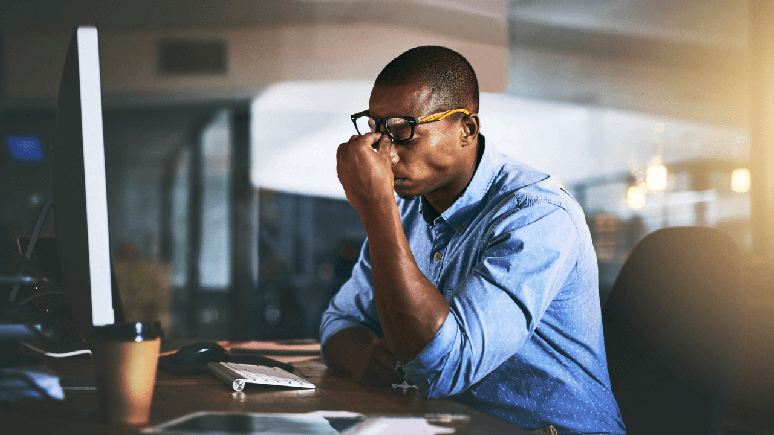The study suggests that most young adults were less outgoing, creative, and conscientious after isolation
NEW YORK TIMES – Whether it’s attending school classes, making a memorable first impression at your first office job, or packing your bags to a rock concert, many of the social rituals that were rites of passage for young were interrupted by the pandemic of coronavirus.
This left people like Thuan Phung, a Parsons School of Design freshman living in Hell’s Kitchen in Manhattan, feeling “a little weird” in the face of real-life interactions. After two years of virtual lessons, he is back in the classroom. “On Zoom, you can mute the sound,” said Phung, 25. “It took me a while to learn how to talk to people.”
Now, a recent personality study suggests that the discomfort he feels is not uncommon for people of his generation, who have been forced into isolation from the restrictions of the pandemic in their 20s, when social anxiety for many of them.
Covid-19 has not only redesigned the way we work and connect with others, it has also redesigned the way we are, according to the study, which found some of the most pronounced effects were among young adults.
Our core personality traits may have diluted, leaving us less outgoing and creative, less likeable and conscientious, according to the study, published last month in the journal Plos One.
These declines amounted to “about a decade of personality change,” the study said. People under the age of 30 showed “interrupted maturity”. This change is the opposite of how a young adult’s personality normally develops over time, the study authors wrote.
“If the changes prove to be lasting, this evidence suggests that stressful events in the population can slightly bend the personality trajectory, particularly in young adults,” the article states.
The authors of the personality study drew on data from the Understanding America Study, an online panel from the University of Southern California that began collecting survey responses in 2014, based on publicly available data from nearly 7,000 participants who responded to a personality survey carried out before and during the pandemic.
Angelina Sutin, lead author of the paper and a professor at Florida State University, said the study results showed that, on average, personality changed during the pandemic, although she pointed out that the findings captured “a snapshot of the pandemic. time “and may be temporary.
“Personality tends to be quite resistant to change. To change it, you may need something like a global pandemic,” said Angelina Sutin. “But it is difficult to pinpoint exactly what was in the pandemic that drove these changes.” Researchers also don’t know if these personality changes will persist.
Look for therapies
They examined five dimensions of personality: neuroticism, stress tolerance and negative emotions; openness, defined as non-conformism and creativity; extroversion, or how sociable the person is; kindness, or whether the person is “confident and direct”; and conscientiousness, how responsible and organized the person is.
Gerald Clore, emeritus professor of psychology at the University of Virginia, said the authors were “duly cautious” in their conclusions and stressed the need for further studies to review the findings.
The pandemic itself was a “hellish experience,” Clore said, theorizing that it may have been the restructuring of routines, rather than general stress, that reshaped people’s personalities.
Perhaps echoing the changes, interest in psychotherapy soared during the pandemic, several therapists said. Virtual therapy has also grown.
At Talkspace, a platform that offers online therapy, the number of active single users increased by 60% from March 2020 to a year later, said John Kim, a spokesperson for the company.
The number of teens seeking therapy at BetterHelp has nearly quadrupled since 2019, a spokesperson for the online therapy company said.
Therapists working in the United States said they observed that their patients were struggling to cope with the limitations of pandemic life and cope with the vicissitudes of social norms.
Nedra Glover Tawwab, a Charlotte, North Carolina-based therapist with a private practice and over 1 million Instagram followers, said she has noticed growing discomfort when people replenish past routines, such as working in an office. .
“We have gotten so used to isolation that now we love it,” she said. “But are you really that person? Or is that just what you have had to accept in this period?”
Delta Hunter, a New York City therapist who mediates a social anxiety therapy group, said the pandemic “aggravated” existing anxiety.
“People want to connect and process things together and we haven’t been able to do any of that,” Hunter said. “People felt lost for everything.”
Young adults, and especially teenagers, faced greater restrictions on activities and experiences typical of adolescence and youth, the study concludes. The survey found that people under the age of 30 exhibited the steepest drops in conscientiousness and agreeableness.
“When your whole world goes into virtual space, you lose that training ground to be able to be more conscientious,” Harmon said, adding that she has seen a lot of social anxiety in younger generations, perhaps because they haven’t built up much experience. face to face and confrontation skills.
Several months ago, Anviksha Kalscheur’s office in Chicago established a teen support program to help young people cope with feelings of disconnection and isolation.
Teens began to express an overall negative view of the future and increased social anxiety, he said. Therapists have noticed a “little dark cloud” in their patients’ perspectives in the face of uncertainty for years to come, she said.
Connection, attachment, and interaction with others are key to personality development, Anviksha Kalscheur said, adding that identity and personality are still forming in younger teenagers.
“They are in that stage of development, but they don’t get the signals, they live the attachments, they go through the learning, all those things that go on without you noticing,” he said. “So obviously your environment has a very big impact on that particular time period.”
How long will the changes in the pandemic period last?
The duration of these changes is an open question, the study authors said.
Therapists, including Glover Tawwab, have said that the transition period to face-to-face life after the worst of the crisis may represent an opportunity for people to slowly reintegrate and reconnect with others and experiences more intentionally.
“It’s a wonderful time to look at the things you miss and the things you’d rather stay away from,” she said. “So now we have that time to create what we really want.”
Grace Wilentz, a 37-year-old poet living in Dublin, said the bright side of the pandemic is that she has gained a self-awareness that has rekindled her lost friendships. She took the time to reconnect with old friends over weekday lunches. “I thought it was going to be hard to revive those relationships,” she said. “In a way, they’re richer and more solid now.”
Positive transformations can be brought about in times of uncertainty, said Anviksha Kalscheur.
“Sometimes it takes a real breakdown of our social, cultural, and even mental health norms to turn them into something better,” said the therapist. “It’s almost as if I broke everything to rebuild it again.” / TRANSLATION OF RENATO PRELORENZOU
+The best content in your email for free. Choose your favorite Earth Newsletter. Click here!
Source: Terra
Benjamin Smith is a fashion journalist and author at Gossipify, known for his coverage of the latest fashion trends and industry insights. He writes about clothing, shoes, accessories, and runway shows, providing in-depth analysis and unique perspectives. He’s respected for his ability to spot emerging designers and trends, and for providing practical fashion advice to readers.








